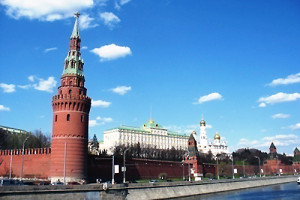July 1 Vote Energized Opposition to Putin and Intensified Succession Struggle, Pavlovsky Says

(Paul Goble – Window on Eurasia – Staunton, July 5, 2020)
By asking Russians to vote yes or no on Putin’s proposals, the Kremlin made a serious mistake, transforming what might have been something like an election into “‘a question of trust,'” as the Kremlin spokesman put it; and its results simultaneously highlighted the size of opposition to Putin and thus intensified the succession struggle, Gleb Pavlovsky says.
Worse, the political technologist and commentator says, those who voted for the amendments did so less because they were for Putin than because they are conservatives. The regime can do nothing with them, but those who voted no are now a clearly defined and even legitimized group (business-gazeta.ru/article/473779).
And consequently, Pavlovsky says, instead of resolving the question of succession, Putin made it much bigger and more explosive because now the question is not simply who will replace him at some point but how the system will be transformed after he goes. By personalizing the constitution, he has ensured that it won’t long outlast his time in office.
Indeed, by acting as he has, Putin has recreated a situation much like the one that existed at the time of the death of Stalin. Everyone who had a chance to succeed realized that the only path forward was to be an anti-Stalinist. Beria recognized that first, but very quickly so did all the others. No one positioned himself as a continuer of the late dictator’s approach.
The simplest thing for the successors would be to “annul” Putin’s constitution and go back to the 1993 one he has gutted, but that is only one possibility; and the others could destabilize the system further, the political commentator says. Thus, Putin did not get the mandate he sought or a solution to his problems. He made them worse.
Now, Pavlovsky says, there is a chance that Putin will try something even more extreme. After all, he has always been “a latent extremist.” He might try a new attack abroad or a pogrom at home, but there is a good chance that these would backfire, the first as Crimea did and the second by causing those not attacked first to assume they could be next.
The Kremlin leader might try something in Belarus, but that would be especially dangerous. He and Lukashenka are like “a pathological family” in which the two partners can’t live together but can’t divorce because if either goes, the other would soon fall into disaster. It isn’t clear whether Putin understands that.
And he is always inclined to go too far because “triumphalism is the Kremlin’s only ideology. Because we have three powers in the country – the formal (which is enumerated in the laws and Constitution), the informal (that which exists by telephone calls), and the demonstrative,” the propaganda machine that “imitates power, victory and triumph” all the time.
“Authoritarianism can be effective if there is a working bureaucratic system which is able to take orders and fulfill them,” Pavlovsky continues. But Russia doesn’t have one. Putin used to be fully in charge, but in the pandemic, he ceded power to others – they were more effective than he and everyone can see that.
That is having the effect of creating a situation in which the pre-existing Russian system has “not a single chance to survive” the pandemic. Putin’s remaining supporters expected him to act and he didn’t; and his increasingly numerous opponents open or not see that he didn’t and want someone in his place who will.
This reflects a fundamental reality, he says. “The Russian system is able to do only one thing: it isn’t capable of developing and modernizing, it isn’t capable of military mobilization (thank God!) but it can survive.” When the people on top cease functioning, those below can still do so. “The system is smarter than its bosses.”
This system arose with the collapse of communism and one can say that “the entire Russian Federation system is a means of survival during a catastrophe … Crises and threats keep its apparatus of survival up to snuff. We have survived, and this is a success; but it is not a success of Putin.” It is the success of this broader striving to survive.
[article also appeared at windowoneurasia2.blogspot.com/2020/07/july-1-vote-energized-opposition-to.html]
